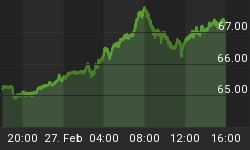Since the end of the Soviet Union, the Russian government has scrambled to shore up its eroding power base. As a result, the surrounding Baltic states are being slapped with energy price hikes they simply can't afford. The situation is truly desperate... and that could mean trouble for you.
At first glance, there doesn't seem to be a lot of reason to care about what's happening in this corner of the world. The three countries that make up the Baltic states - Estonia, Latvia and Lithuania - don't produce any oil or gas. In fact, they depend on imports for much of their natural resource needs.
But these tiny nations do play a role in the global energy markets. They are home to ports that transport oil overseas.
In fact, up until 2002, there were only two Baltic ports connected to Russia's massive oil pipeline system - Ventspils in Latvia and Butinge in Lithuania. ( Estonia's Tallinn port gets its oil by train.)
Ventspils was the largest port on the Baltic Sea, too, until Russia completed its Primorsk port in 2002. And that's when the trouble began.
At the heart of the problem is Transneft, a holdover from the Soviet Union that controls all of Russia's pipelines. After Primorsk was ready to start operations, the company saw no reason to keep pumping oil to Latvia's Ventspils port. It shut off the spigot.
Now if Latvia wants to ship oil, it needs to get it to port by train. Obviously, that's more expensive and less efficient than using a pipeline. The higher costs and loss of volume cut into the port's profit margins - and by extension, the country's wealth. Today, Ventspils is shipping only a third of the oil it used to.
The situation at Lithuania's Butinge port is a little less grim. The country has retained better relations with its Russian oil suppliers than Primorsk did. In fact, the port was able to ship more oil than its larger Latvian neighbor in 2003. But that amount is still tiny compared to the oil coming out of Primorsk. And Russia still holds the keys to the pipeline... so it could choose to shut off Butinge's supply of oil at any time.
How likely is that? Who knows? The fact is the region is a mess, and things can turn on a dime. Right now, Ukraine and Russia are in a struggle for control of the pipeline system. Meanwhile, a border dispute between Russia and Estonia has flared up again, just when it seemed like things were settled. And shutting off Latvia's oil pipeline hasn't helped relations there, either.
All the Baltic states are having problems working with Russia to secure borders and fair prices for energy supplies. And as if things weren't bad enough already, Russia recently fired another shot over the already struggling Baltic states...
In early June, Russia's gas monopoly, Gazprom, announced plans to raise the price of gas supplied to the Baltic states over the next three years.
Now, to be fair, the Baltic states were getting a pretty good deal before. Latvia was paying around $92-94 per thousand cubic meters of gas. Lithuania paid $85 and Estonia $90. Meanwhile, Western European customers pay about $150 per thousand cubic meters. Gazprom is saying that will be the new price for the Baltic states too.
It may seem like a common-sense move. But the truth is the company is probably raising rates just because it needs the money.
A Russian investment fund with a stake in Gazprom publishes a yearly audit noting the firm's shortcomings. The report states that Gazprom has at the very least stopped the wholesale looting of assets that it used to allow through the sale of gas reserves to joint-venture partners at knockdown prices.
But this company still has many, many problems. The report points to wasteful tax-payment schemes, seeming nonchalance about unpaid bills, disproportionately high wage costs and extremely costly pipeline projects. As a result, Gazprom's market value in relation to its reserves is miniscule compared with the likes of BP or Shell. And Gazprom's gas output in 2004 was no higher than in 1999.
So the rate hikes might help Gazprom, but they're not doing the Baltic states any favor. The average worker in the region earns between $400 and $600 a month. (My own mother-in-law is a doctor in Estonia and earns around $700 a month.) With such low wages and the region's notoriously cold winters, the next several months are going to be tough for the people. The Baltic states may truly discover the price of independence.
Of more concern to us, however, are the oil exports. On average, Russia's Primorsk port is iced in 155 days out of the year - putting a damper on exports. Higher prices could bring Ventsils' imports to a complete halt. And no one knows what effect prices and events will play on Lithuania's exports.
With a total of 1.5 billion barrels of oil per day on the line, investors will do well to pay close attention to this region.















